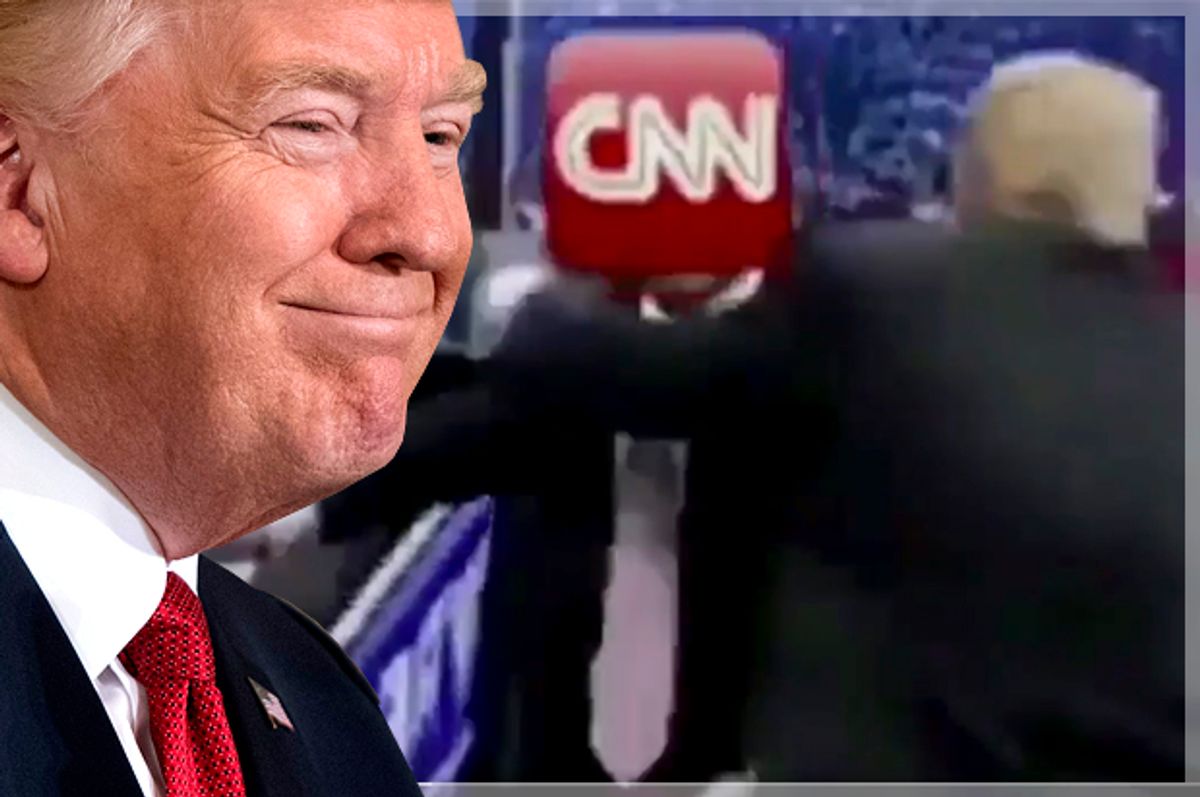A 19-year-old from Novi, Mich, is facing federal charges after authorities say he threatened to travel to Atlanta and kill people at CNN headquarters.
These are the comments that the suspect, Brandon Griesemer, is alleged to have made over the phone earlier this year, according to The Washington Post.
"Fake news. I’m coming to gun you all down. F — k you, f — king ni—rs."
"I am on my way right now to gun the f — kin’ CNN cast down. F — k you."
After the operator asked for his name:
"F — k you. I am coming to kill you."
"I’m coming for you CNN. I’m smarter than you. More powerful than you. I have more guns than you. More manpower. Your cast is about to get gunned down in a matter of hours."
"You are going down. I have a gun and I am coming to Georgia right now to go to the CNN headquarters to f — king gun every single last one of you. I have a team of people. It’s going to be great, man . . . You gotta get prepared for this one, buddy."
These are only excerpts. According to the FBI, the perpetrator made a total of 22 phone calls to CNN on Jan. 9 and Jan. 10, filling them with expletives as well as racist and anti-Semitic content. He also referred to the network as "fake news."
President Donald Trump is not innocent when it comes to the violent threat made earlier this year against CNN.
"Fake news" is Trump's favorite epithet to refer to media outlets which are critical of his presidency. Because the rhetoric of politicians is meant to embody calls for wider social change, those who use that tool to stir up hostility cannot shirk culpability when their followers take their rhetoric to the next level. There is something seriously wrong with any political leader who deliberately stokes hatred.
That's why it would be intellectually dishonest to claim that these vile threats are in no way connected to Trump's rhetoric. After all, the president has not only tried to delegitimize news outlets for disagreeing with him or reporting on the unflattering things about his campaign and subsequent presidency. He has also deliberately employed violent imagery against them, as evidenced by the tweet below.
"I think there's two real threats here. One is that he's constantly doing these threats about libel laws, about revoking media licenses, and what I referenced before, the post office threat, right? Sort of trying to intimidate journalists. And I think that may have an effect over time, if it happens for the next seven years. I mean, this is still possible, right?" Brian Klaas, the author of "The Despot's Apprentice," told Salon earlier this month.
He added, "The second aspect of this is that there are a lot of people out there who think journalists are the enemy of the people, as Trump says. Who thinks they're a stain on America, as Trump says. And if I were a journalist, I would be really worried about somebody in one of the states that is extremely pro-Trump seeing a Washington Post reporter and thinking, 'You know what, I'm gonna take care of the Fake News.'"
Just to be clear: This problem is by no means limited to Trump's treatment of the media. As the rise in hate crimes during his presidential campaign and the spike in offenses such as anti-LGBTQ crimes during his presidency demonstrate, Trump has had a ripple effect of hate that has impacted every group he has targeted. No one — not African Americans, not Hispanics, not Muslims, not Jews, not women — has been spared. Trump didn't create the strains of hatred that have now become increasingly prominent in American life; he merely recognized that they were there and exploited them for his own benefit.
That said, it is time for the media to recognize that one cannot discuss incidents like the events at CNN without making Trump and his supporters front and center in the narrative.

Shares